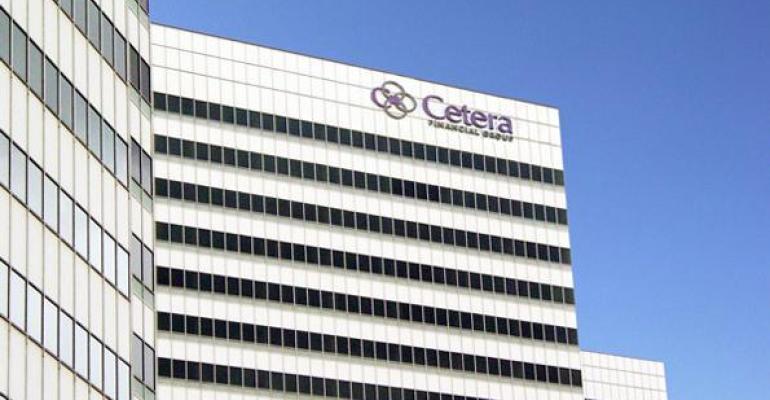Last month, two ratings agencies said they were reviewing Cetera Financial’s credit ratings for a possible downgrade, citing concerns that the firm’s announced acquisition of Avantax for $1.2 billion in cash could weaken its financial profile. Moody’s Investors Service recently affirmed two of Cetera’s ratings and downgraded its senior secured bank credit facility ratings to B2 from B1. Meanwhile, S&P Global Ratings affirmed its ratings and removed Cetera from CreditWatch negative.
The news comes as Avantax shareholders are set to vote on the acquisition on Nov. 21.
“We are pleased with the Moody’s decision to affirm our ratings of B2/Stable and S&P’s decision to affirm our rating of B/Stable," said a Cetera spokesperson, in a statement. "This is a testament to Cetera’s management team and the firm’s excellent track record of acquisition financing, profitability and success.”
Moody’s assigned B2 ratings to the company’s proposed $1.689 billion senior secured first lien term loan and $700 million senior secured notes. Its outlook on the broker/dealer network is stable.
The downgraded ratings as well as the B2 ratings assigned “reflect the significant increase in the volume of secured debt in its capital structure, as well as the priority ranking of secured debt relative to its unsecured debt,” Moody’s said in a report.
The downgraded ratings include Cetera’s $1 billion senior secured first lien term loan, $750 million senior secured first lien term loan and $175 million senior secured first lien revolving credit facility. Once it refinances, Moody’s will withdraw the B2 rating on the $1 billion senior secured first lien term loan.
Moody’s also confirmed Cetera’s corporate family rating and its senior unsecured rating, a reflection of “its improved profitability, cash flow and debt leverage throughout the year to date, which will allow it to better absorb the significant amount of debt it plans to issue to fund the purchase of Avantax, Inc. and maintain a financial profile consistent with its current rating level.” Moody’s also cited the scale and strategic benefits of the acquisition, with the rating agency estimating the acquisition will boost its total assets to around $475 billion.
Cetera’s trailing 12-months’ debt/EBITDA ratio on a Moody’s adjusted basis was around 3.4x as of June 30, 2023, compared to 7.1x as of the end of 2021. The rating agency said it expects the acquisition to lead to an increase in its leverage ratio to around 5.2x by the end of 2024, but not enough to change Moody’s rating.
S&P Global Ratings affirmed its ratings on Cetera, including its B issuer credit, B senior secured and CCC+ senior unsecured debt ratings, and removed them from CreditWatch negative. Its outlook is also stable. The agency also assigned a B rating to the new revolving credit facility, incremental first-lien term loan and new senior secured notes. The Avantax acquisition increased Cetera’s pro forma leverage from 3.5x at the close of its acquisition of Securian to 4.8x, S&P said.
“The affirmation reflects our expectation that despite the increased debt burden from the Avantax acquisition, credit metrics will remain within our tolerances for the rating,” S&P said in a report.
S&P agreed with Moody’s that the Avantax acquisition improves Cetera’s scale. Both agencies also said the company should benefit from a higher interest rate environment.
“Higher-for-longer rates and cost synergies from acquisitions should support EBITDA over the next 12 months,” the S&P report said. “We believe the Federal Reserve's intent to keep interest rates higher for longer should continue to support cash sweep revenues. We also believe execution risk related to the acquisition of Avantax is limited given the amount of fairly easily realizable synergies such as leadership and public company related staffing and overhead expenses and consolidation of shared services. The company continues to make progress in realizing the synergies identified as part of the recently closed acquisition of Securian.”
“Interest rate-driven revenue generally flows to the firm's bottom-line with little associated incremental expenses because of the rate-insensitivity of client cash balances,” Moody’s said. “These benefits will more than offset lower advisory and commission fees if the level of broad equities markets should moderately decline, and with increased interest expense. Additionally, Moody's expects Aretec to preserve the benefits of higher rates through increasing the portion of client cash swept into fixed rate accounts or through interest rate hedges.”





